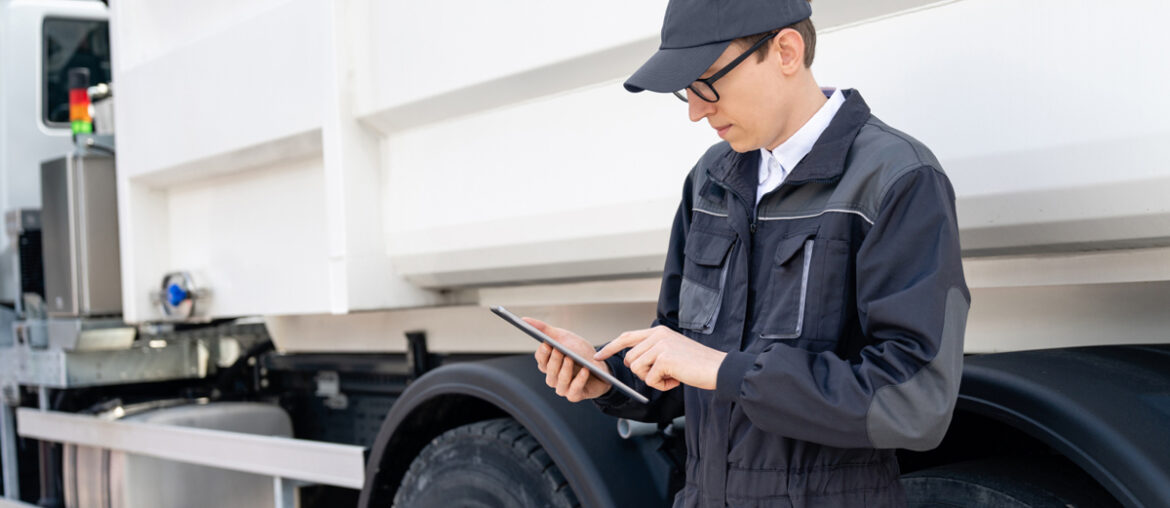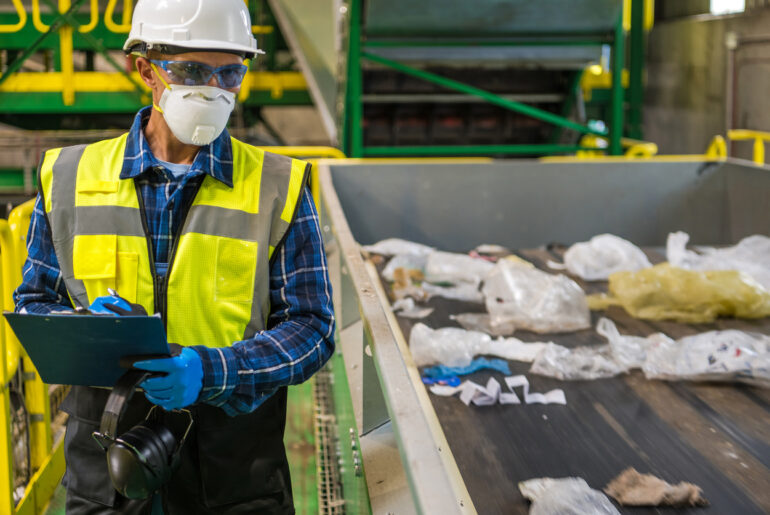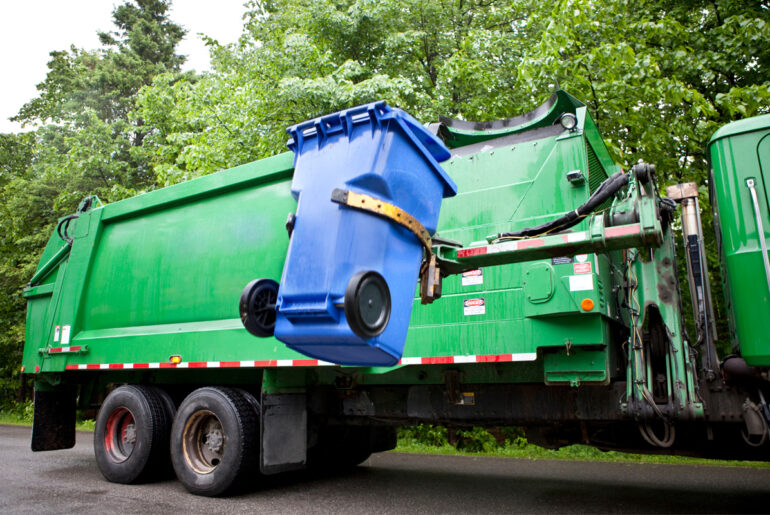Proper waste management is crucial for businesses of all sizes, not only to comply with regulations but also to minimize environmental impact and reduce costs. Inefficient waste management practices can lead to increased disposal costs, harm to the environment, and even damage to a company’s reputation. This article will discuss six effective steps businesses can take to improve their waste management operations and ensure they run a sustainable and responsible operation.
By following these steps, businesses can significantly improve waste management operations, promote sustainability, and achieve cost savings, positively impacting the environment and the bottom line.
1. Optimizing Routes and Services
One key step in improving waste management operations is optimizing routes and waste management services. By analyzing collection routes and schedules, businesses can identify areas for efficiencies that reduce fuel consumption, emissions, and overall costs.
Consider implementing garbage pickup routing software, like RouteManager, that can help determine the most efficient collection routes based on location, type of waste, volume of waste, and traffic patterns. Businesses can reduce their carbon footprint, minimize fuel consumption, and save on transportation costs by optimizing routes.
2. Promote Proper Waste Sorting
Implementing single-stream recycling or other waste-separation technologies can greatly simplify the process of waste disposal for individuals. Providing customers with clear and user-friendly methods for separating waste makes it easier for them to dispose of recycled and non-recyclable materials accurately.
One effective way to encourage accurate waste separation and better waste streams is by using graphic instructions on disposal bins. Visual cues such as images or diagrams can help individuals understand which items go in which bin, reducing the chances of improper waste disposal. For example, a bin with a picture of a plastic bottle can indicate that this bin is specifically for recyclable plastic items and not organic waste.
Additionally, behaviorally informed rewards can provide further motivation for proper waste separation. By implementing a system that rewards individuals for correctly disposing of their waste, such as a loyalty program or incentives, people are more likely to take the time to separate their waste accurately. These rewards can range from discounts or coupons for local businesses to recognition or small tokens of appreciation.
Overall, encouraging accurate waste separation is crucial in reducing the amount of recyclable waste going to landfill. By implementing single-stream recycling or other waste-separation technologies, providing clear instructions on disposal bins, and offering behaviorally-informed rewards, individuals are more likely to correctly dispose of their waste, increasing the likelihood of these materials being recycled instead of ending up in landfill.
3. Enforce Ordinances
Enforcing ordinances related to solid waste management in cities is of the utmost importance for several reasons. First, it helps maintain cleanliness and hygiene in urban areas, reducing the risk of diseases and ensuring a healthy living environment for residents. Second, strict enforcement ensures that garbage is properly disposed of and not left to accumulate, preventing the breeding of pests and the spread of illnesses.
Secondly, enforcing solid waste management ordinances facilitates the efficient collection, separation, and disposal of waste. By imposing regulations on waste segregation and providing guidelines for proper handling, cities can optimize garbage collection processes, minimize environmental impacts, and improve recycling efforts to provide new raw materials. This ultimately contributes to the conservation of natural resources and the reduction of pollution caused by plastic and even organic waste like food scraps.
Successful implementations of these ordinances can be seen in various cities around the world. For example, Taipei, Taiwan, has implemented a highly efficient recycling system where garbage trucks equipped with electronic sensors scan residents’ recycling bags for proper separation. The system incentivizes citizens to recycle through a “pay as you throw” program based on the weight of waste, resulting in a significant decrease in landfill waste.
Another example is San Francisco, California, which introduced a comprehensive ordinance requiring residents and businesses to sort their waste into three separate bins: compost, recycling, and landfill. As a result, the city has achieved an impressive 80% waste diversion rate, maximizing recycling efforts and reducing the burden caused by waste in landfills.
Enforcing solid waste management ordinances not only addresses the pressing issue of waste management but also brings economic benefits. Many cities implement programs that generate revenue from waste collection and recycling operations, helping offset management costs and creating job opportunities in the process. Therefore, strict enforcement of solid waste management ordinances is essential for maintaining a sustainable and clean urban environment.
Start Using RouteManager!
4. Empower Drivers
Empowering drivers with information and route assistance features in waste operations can yield several significant benefits. By providing drivers with real-time updates and data, they can maximize pickups more efficiently. This feature allows drivers to plan their routes effectively by avoiding congested or inaccessible areas. Consequently, their productivity increases as they can cover more ground within their assigned working hours.
In addition to maximizing pickups, empowering drivers with information and route assistance helps enhance driver safety. Fatigue is one of the leading causes of accidents and mishaps in waste operations. By using these features, drivers can better manage their schedules and workloads, reducing the risk of fatigue-related incidents. Real-time route assistance also enables them to navigate through unfamiliar areas safely, minimizing the chances of getting lost or encountering hazardous conditions.
Moreover, easy access to information and route assistance features give drivers valuable insights into customer preferences and requirements. This knowledge allows them to prioritize pickups according to specific needs, such as more frequent collections for commercial establishments or increased recycling pickups in designated areas. By catering to these preferences, waste management companies can improve customer satisfaction and strengthen their business relationships.
5. Minimize Missed Pickups
Reducing missed pickups is crucial in a solid waste collection operation to enhance customer satisfaction. Several strategies and techniques can be implemented to achieve this goal, decrease costs, and increase efficiency.
One effective strategy is to establish a systematic communication system. This can involve implementing a computerized notification system that alerts collection crews of any missed pickups. This way, immediate action can be taken to rectify the situation and ensure timely service. Additionally, ensuring open lines of communication between the collection crew and customers can help identify missed pickups before they become major issues. Customers can be encouraged to report missed pickups through various channels, such as phone, email, or dedicated online platforms.
Regular training and education programs for collection crews are essential to minimizing missed pickups. Crews should be equipped with the necessary skills and knowledge to identify potential missed pickups, avoid common pitfalls, and efficiently manage their routes. Implementing effective route planning and optimization can further enhance efficiency and reduce the likelihood of missed pickups.
Confirmation of service is a proactive approach to minimizing missed pickups. Employing technology such as mobile applications can enable customers to confirm their waste collection schedule, ensuring that missed pickups are avoided. Moreover, organizing regular audits of the collection process can help identify underlying causes of missed pickups, allowing for the implementation of targeted solutions.
Adopting these strategies and techniques can significantly reduce missed pickups, improve customer satisfaction, reduce costs, and increase overall operational efficiency in solid waste collection operations.
6. Enhance Engagement in Disposal Programs
To increase participation in disposal programs or recycling programs, it is important to reduce friction costs and address the cognitive burdens that residents may face. Friction costs refer to the effort and resources required to participate, while cognitive burdens are the mental obstacles that may prevent residents from taking action.
One strategy to reduce friction costs is by providing convenient disposal options. This can include placing disposal bins for everyday waste like water bottles in easily accessible locations, such as near residential complexes or community centers. By making it easier for residents to dispose of their regular waste and food waste, they are more likely to participate in the program.
Effective communication techniques can address cognitive burdens. Timely reminders can be sent to residents via email, text messages, or community bulletin boards to help them remember the disposal schedule and encourage their participation.
Another effective strategy is the use of social norm messaging. By informing residents about their peers’ waste disposal habits, they may feel more motivated to align their own behavior with the social norm of more sustainable waste management. This can be done through community-wide announcements, posters, or even personalized letters on how to properly dispose of their organic materials.
Behaviorally informed mailers can also be utilized to encourage proper waste disposal, especially of hazardous waste. These mailers can provide residents with information about specific disposal requirements or tips for more efficient waste management strategies. Providing residents with tangible and easy-to-understand instructions reduces their cognitive burdens and increases their participation.
Benefits of Using RouteManager
RouteManager is garbage pickup routing software that helps garbage drivers and delivery businesses with last-mile logistics. Some of the key advantages of using route-planning software include:
1. Advanced Route Planning: Utilizes advanced algorithms to create optimized delivery routes that take into account factors such as traffic patterns, road conditions, and customer preferences. This ensures that drivers are taking the most efficient routes possible, saving time and fuel costs.
2. Real-Time Tracking: By providing real-time tracking of deliveries, waste businesses can monitor the progress of their drivers and ensure that deliveries are being made on time. This can help improve customer satisfaction and streamline operations.
3. Reporting & Analytics: Offers comprehensive reporting and analytics tools that allow businesses to analyze delivery performance, track key metrics such as delivery times and fuel consumption, and identify areas for improvement. This data-driven approach can help businesses make informed decisions to optimize their delivery operations.
4. Integration with Existing Systems: Easily integrate with existing systems such as GPS devices, fleet management software, and customer relationship management (CRM) systems. This seamless integration streamlines the delivery process and ensures that all data is centralized and accessible in one place when planning routes.
Closing Thoughts
Improving waste management operations in your business requires a proactive and systematic approach for a sustainable future. By implementing strategies such as establishing effective communication systems, providing regular training for collection crews, confirming service with customers, and increasing participation in disposal programs, businesses can significantly reduce missed pickups and enhance overall operational efficiency.
Partnering with RouteManager can further optimize waste management operations by providing advanced route planning and optimization solutions. RouteManager can help businesses create more efficient and effective routes for their collection crews, reducing travel time and costs. Additionally, RouteManager’s technology can provide real-time tracking and monitoring of collection activities, allowing businesses to identify potential issues and make adjustments as needed. By incorporating RouteManager into your waste management operations, businesses can streamline their processes, improve customer satisfaction, and ultimately achieve greater success in managing their waste collection operations. Ready to grow your waste management business? Schedule a demo today!



